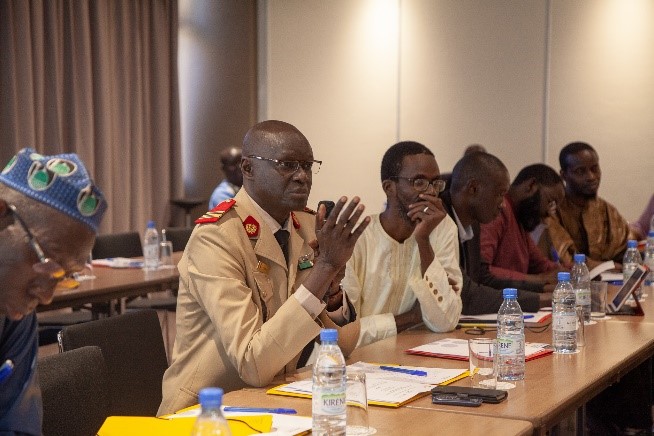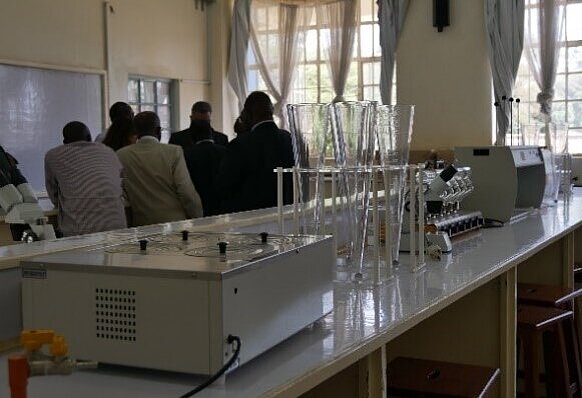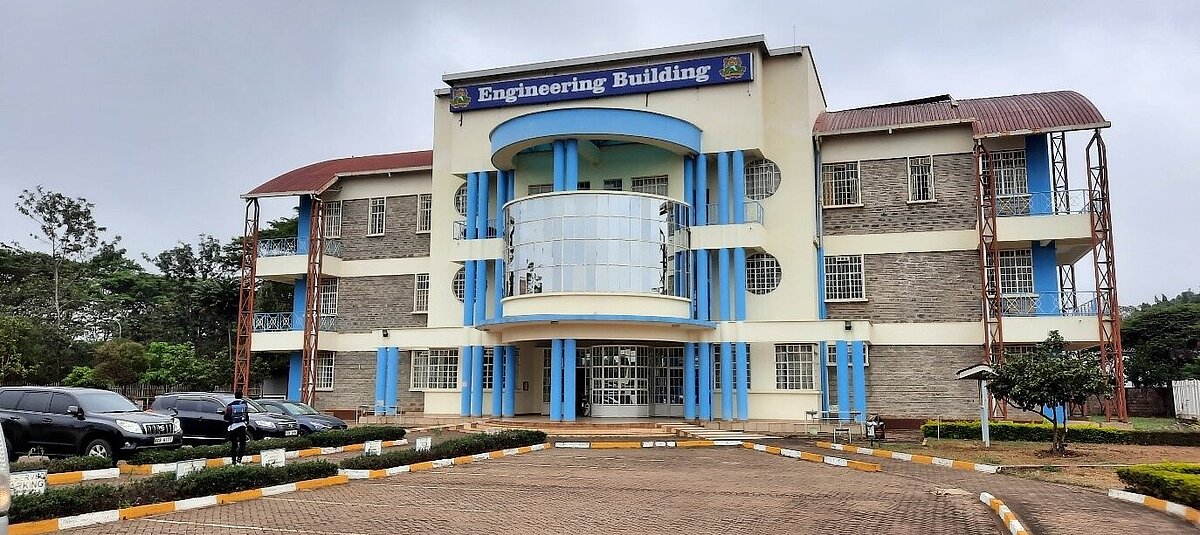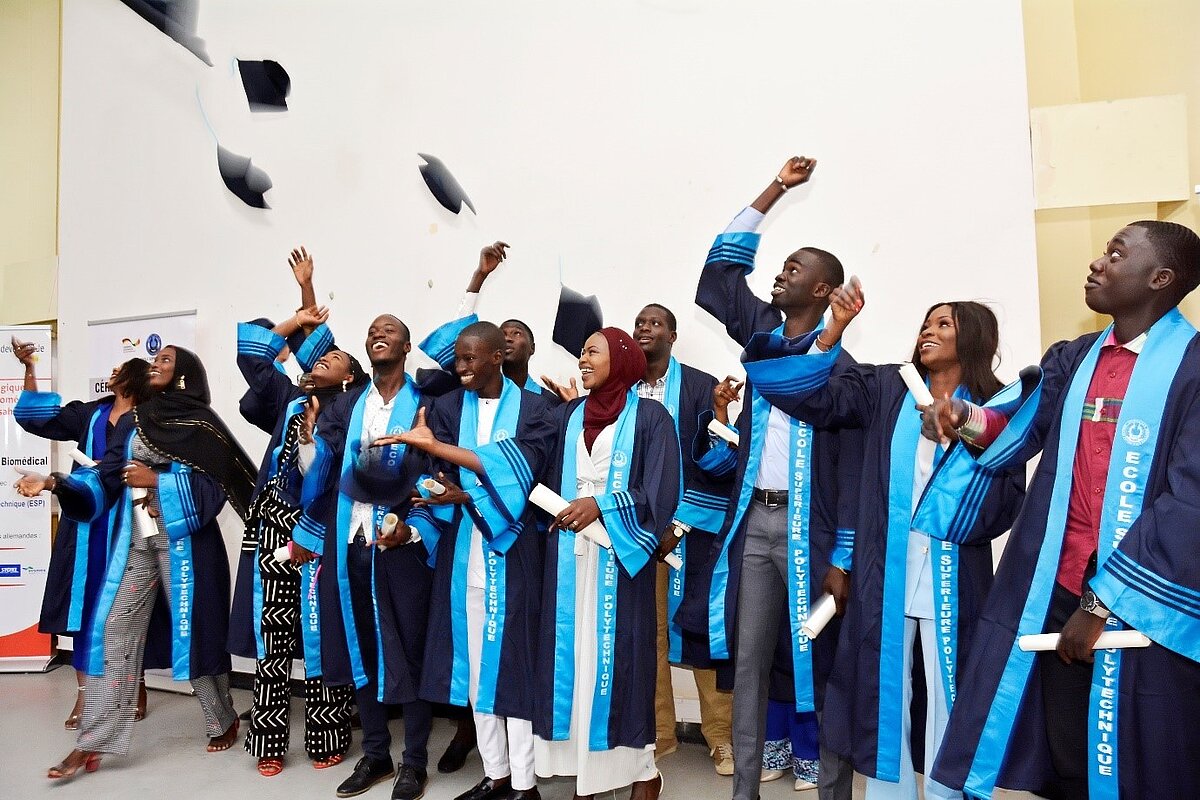Developing a strong network of biomedical engineers in sub-Saharan Africa and globally
Sysmex – together with other MedTech companies and the Deutsche Gesellschaft für Internationale Zusammenarbeit in a strategic alliance – have been working together to develop the infrastructure of biomedical professional training in Senegal and Kenya since 2018. The development phase of this long-term initiative will soon be completed. We take a look at how the initiative started, the results that are already being seen, and the future outlook of the impact on the health care landscape.
Enriching the local biomedical engineering field in Kenya and Senegal
With all of the medical advances we have seen over the last century, it’s hard to believe that half of the world’s population cannot obtain essential health services [1]. Sub-Saharan Africa is one of the regions most disadvantaged in this regard, with a lack of skilled personnel and infrastructure being a top concern. As population grows and life expectancy increases, new challenges have emerged, such as the rising burden of non-communicable diseases.
The challenge in the countries of Kenya and Senegal is to improve health sector facilities and equipment by increasing the number of qualified biomedical technicians and engineers. For example, in a 2015 survey of global biomedical engineering resources, the World Health Organization found that there were just 23 biomedical engineers in Senegal. These skilled professionals would support the installation, operation, repair and maintenance of clinical equipment in health care facilities for patient use.
Kenya has already established the basis for biomedical engineering as a career, with a professional association and a degree course offered by Kenyatta University. However, the teaching is theoretical and technologically outdated, and there is still a shortfall in the number of people qualified to provide such services.
Strength in numbers – a strategic alliance
The entire project involves a number of ministries, organisations and companies, brought together through the develoPPP programme. develoPPP is a funding programme of the German Federal Ministry for Economic Cooperation and Development (BMZ) and is aimed at companies that want to invest sustainably in a developing or emerging country and expand their local operations. The programme provides technical and financial support of up to 2 million euros for suitable projects. [2]


Photo courtesy of Deutsche Gesellschaft für Internationale Zusammenarbeit (GIZ) GmbH. April 2018.
As part of this develoPPP programme, the Deutsche Gesellschaft für Internationale Zusammenarbeit (GIZ) GmbH has formed a strategic alliance with five global leaders in the manufacture of diagnostic products, including Sysmex EMEA. All of the partners have been working together since 2018 to develop a bachelor’s degree (BSc) in biomedical engineering for Senegal, adapting the course offered in Kenya and making equipment available to the academic institutions involved to enable them to provide more practical training. The strategic alliance cooperates with the ministries responsible for education and health, one partner university in each country as well as a number of hospitals in the partner countries.
The initiative and its methods
The strategic alliance has the main goal of increasing the supply of qualified biomedical engineers in Kenya and Senegal by introducing a BSc in biomedical engineering that provides training in practical skills matching labour market needs. The project started with an analysis of the conditions in both countries with a focus on the introduction of the degree course. The course curriculum was developed on the basis of proposals make by the Aachen University of Applied Sciences in collaboration with the project’s academic partners, the School of Engineering and Technology at Kenyatta University (KU) in Kenya and the Polytechnic School (ESP) at the Cheikh Anta Diop University of Dakar in Senegal.

The courses that were developed combine theoretical and practical training, including student placements at labs and hospitals. Students receive a foundation in subjects such as mathematics, anatomy and physics, as well as training in practical skills, diagnostic and therapeutic procedures, and measurement and control technology. They also develop the relevant technical know-how for the operation and maintenance of modern high-tech equipment.
In cooperation with the institutions involved, the strategic alliance partners (the five German companies, including Sysmex) provide the two universities with state-of-the-art medical equipment used for dialysis, infusion therapy, management of sterile supplies, endoscopy, radiology, haematology, anaesthesia, ventilation, monitoring and warming therapy. In addition, they provide trainer training for lecturers and other staff in the operation and maintenance of the equipment. Graduates are qualified to work as biomedical technicians in health care facilities and as trainers, consultants, and sales representatives in a wide variety of fields in the health sector. The partners will ensure the sustainability of the course by accrediting the training.
The project is closing, but things are just getting started
When asked about the impact of this project on region, a lecturer from ESP states, “We expect the programme to have a huge impact on the region. We will not only train students from Senegal during a three-year programme, after which they will have a bachelor’s degree, but also we will incorporate students from other countries […] and these graduates will then go back to their home countries and start working in the biomedical engineering field.”
Some other countries (Ghana) are already showing interest in implementing the study course programmes in their countries. The company partners will still stay for some more time in these two countries to support the universities and hospital partners. GIZ is officially closing the programme on 31 December 2022, but the company partners will stay for six months during a transitional period to make sure that everything continues to run smoothly.
ESP and KU both started to teach the updated curriculum in autumn 2018. The first cohort of students received their degree certificate (16 at ESP, 28 at KU) and there are currently a total of 186 students are enrolled in the bachelor programme (50 at ESP, 136 at KU).

Photo courtesy of Deutsche Gesellschaft für Internationale Zusammenarbeit (GIZ) GmbH. May 2022
References
[2] develoPPP Programme (2022): THE FUNDING PROGRAMME DEVELOPPP
